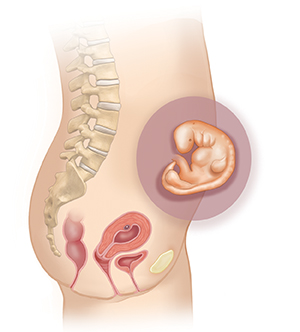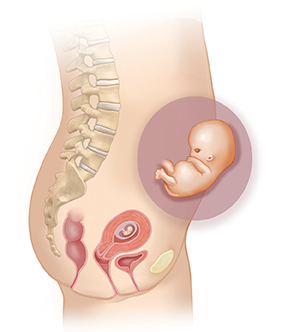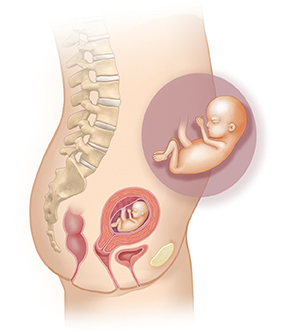The first trimester is a time of rapid development for your baby. Because your baby is growing so quickly, it is important that you start a healthy lifestyle right away. By the end of the first trimester, your baby has formed all of its major body organs and weighs just over an ounce.
Month 1 (weeks 1 to 4)
The placenta (the organ that nourishes your baby) begins to form. The brain, spinal cord, heart, gastrointestinal tract, and lungs begin to develop. Your baby is about ¼ inch long by the end of the first month.
Month 2 (weeks 5 to 8)
All of your baby’s major body organs form. The face, fingers, toes, ears, and eyes appear. By the end of the month, your baby is about 1 inch long.
Month 3 (weeks 9 to 12)
Your baby can open and close its fists and mouth. The sexual organs begin to form. As the first trimester ends, your baby is about 3 inches long.




